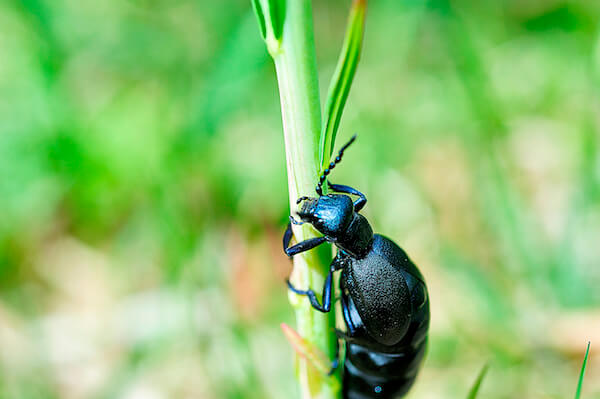
Which of These Pests is the Least Harmful To A Lawn
While your first instinct when you see any kind of insect on your property might be to squish it, sometimes it is best to know what it is you are trying to eradicate. Yes, many insects can become pests by invading our homes, spreading disease, and destroying lawns and buildings, but sometimes that insect might be the one trying to keep the bad bug population at bay. Get informed before you start to spread bug killer all over your yard by reading ahead.
Not Every Outdoor Bug is Bad
You might prefer to dig your toes into your thick green grass and not encounter a six-legged creature, but there are many insects that work with the green and growing ecosystem of your lawn and landscaping to maintain a healthy balance. Some insects are gardeners that work to till the earth, which helps the root structure of your grass to thrive. Others eat the harmful larvae and bugs that chew up roots and choke leaves. Consider including some plants in your landscaping that invite the good bugs to come and help control the bad ones.
4 Friendly Safe Insects to Invite into Your Landscape
- Earthworms: The brown wiggly worms actively work to break up clumps of earth which improves oxygenation of the soil and aeration of root systems. If you see earthworms in your soil, you likely have a healthy lawn.
- Ground Beetles: These shiny black insects love to eat destructive creatures like slugs and snails. They like to hide under stones and in logs. They aren’t eating your lawn, just feasting off the creatures that eat decomposing organic materials.
- Honeybees: If you notice a smaller, fuzzy striped bee zipping across your lawn, they very well could be a honeybee. They rarely sting humans unless their hive is disturbed and work tirelessly to pollinate your blooming trees, shrubs, and flowers.
- Ladybugs: This pretty orange shelled beetle with black spots is truly a friend of your yard. They eat aphids, scales and mealybugs–not your grass or flowers.
What About Damage to My Lawn or Home?
Now, if you have carpenter ants chewing on your deck or large brown patches popping up across your lawn, you do have an insect pest problem and need to address it. While a broad spectrum pesticide will likely take care of any obvious insects crawling about the yard, just remember that the chemical will harm all those good bugs, too. Knowing which insect is wreaking havoc can help you to tailor your approach and target only the problem insect.
Common Destructive Insects Found in Florida Lawns and Grass
- Chinch Bugs: You might not see the chinch bugs until you have a serious infestation. They feast on your St. Augustine grass starting at the dry thatch level and work their way down into the top layer of soil. You will notice large circular brown patches of grass, first appearing in dry, sunny, and sandy areas of the lawn.
- Mole Crickets: These long and brown crickets are not picky about what they eat, but prefer soft, green shoots of young lawns and gardens. Since they don’t care what or where they eat, they will keep returning and require repetitive treatments to keep damage to a minimum.
- Webworms: You will first notice small circles of dying grass when the webworms arrive. They love chewing on the blades of St. Augustine and zoysia grasses, but feed only at night. During the day you will find the inch-long green worms curled up in a ball hiding beneath the thatch. Treating your lawn for webworm at the right time of the year can prevent an outbreak.
- White Grubs: There are many types of white grubs found in the soil of lawns. They eat the roots, leaving the seemingly healthy green tufts to die of starvation. They are found by turning over the turf of dying sod and you will see their white bodies wriggling away from the light. Your lawn care expert can help to identify which grub is at work on your property.
You will notice that the insects that destroy your lawn are not the ones you notice crawling across the sidewalks. Learn more about damaging insects and how to get rid of them without harming the rest of your property by contacting the professionals at Duda Sod today.